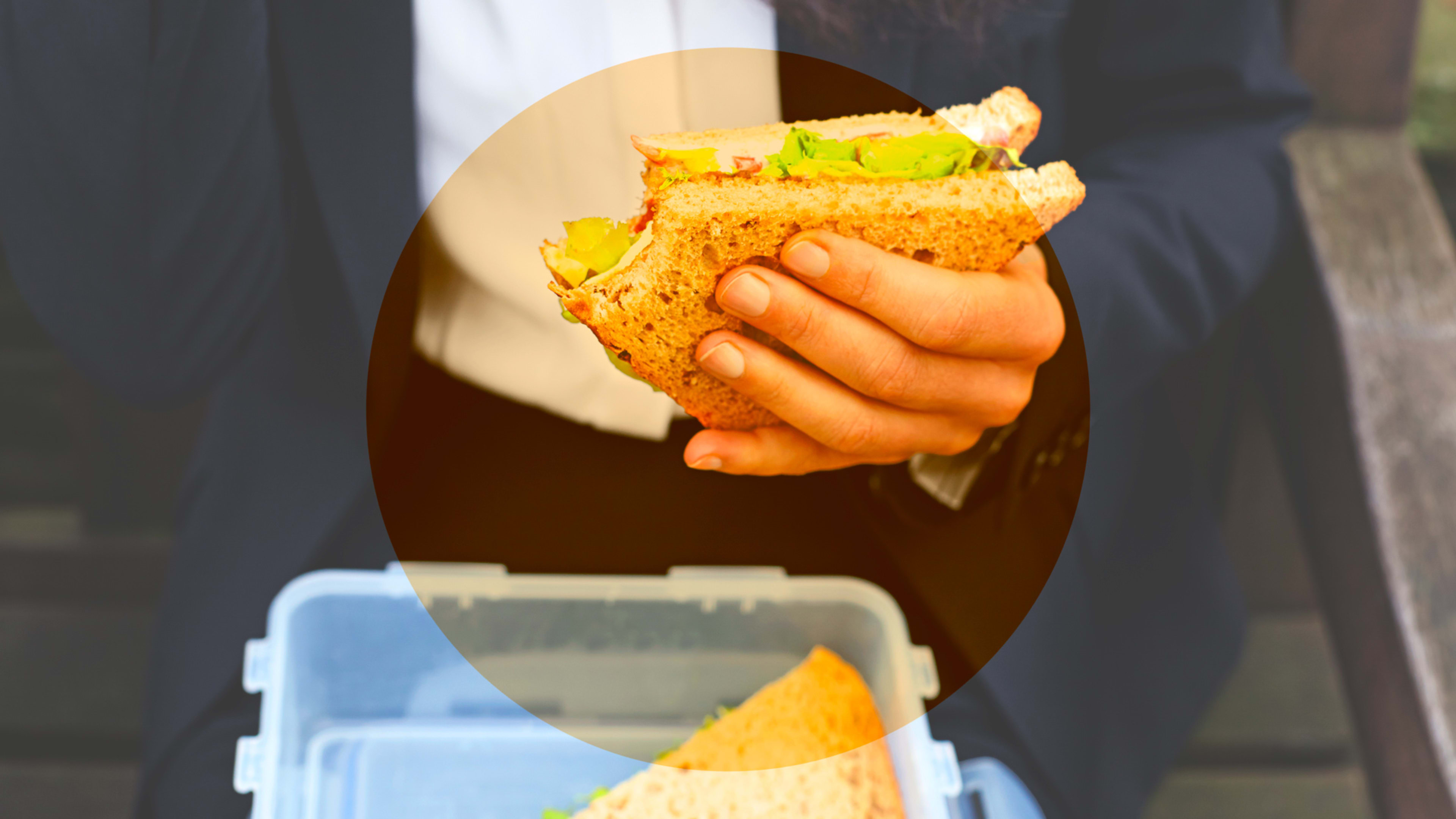When it comes to finding work/life balance, you probably focus on after-work activities that can help you replenish your energy. Feeling more refreshed, however, can start at lunch. According to study published in the Academy of Management, a good lunch break is an essential way to rest and recharge for the second half of the day.
However, what you do with your time matters. Researchers found that engaging in relaxing activities during lunch aids in energy recovery, while working through lunch or even socializing can yield suboptimal recovery outcomes.
A key factor in feeling refreshed is autonomy. Having the freedom to choose how to spend the time was the dominant factor in how restful the employees’ lunches were. For example, when an employee chooses to spend time talking to others, the negative effects were offset.
Choose What’s Right for You
“Lunch breaks should be restorative experiences,” says Dr. Ken Matos, director of people science at the employee experience platform Culture Amp. “For a more introverted person that might mean getting away from the office and colleagues long enough to refuel. For an extravert that would be finding ways to connect with people, possibly through a visit to a break or lunch area or kitchen.”
The right thing to do will also be influenced by what you do all morning, Matos adds. “Even some extraverts might decide to have a solo lunch if they have been on the phone or Zoom all day,” he says. “If you work from home and are seeking social contact, you may need to plan ahead to arrange a lunch date, virtual or in-person.”
Get Outdoors
Some activities are natural energy boosters, replenishing the cognitive resources you’ve been burning up all morning, says Dr. Gloria Mark, University of California’s Chancellor Professor of Informatics, and author of Attention Span: A Groundbreaking Way to Restore Balance, Happiness and Productivity.
“Ideally, go outside for 20 minutes and take a walk,” she says. “Research has shown that a 20-minute walk can make people significantly less stressed, and my own research has shown that their divergent thinking—being able to generate more and different ideas—increases.”
Taking a walk also helps combat being sedentary. Research shows that knowledge workers spend the majority of their day sitting. “Move around, talk a walk, and stretch,” says Mark.
Avoid Venting Sessions
Whether you choose to socialize or not, Mathos says it’s important to avoid talking about things that are stressful. “Talking about work with coworkers over lunch can be fun, so long as it’s a conversation about the work and people you enjoy,” he says. “Avoid turning lunch conversations into venting sessions or you won’t truly have had a break.”
Similarly, avoid using lunch to discuss tasks that frustrate you, Matos adds. “Discuss work tasks that offer opportunity either to be creative or get substantive mentorship or help from a colleague,” he says. “Rehashing the stupid, but unchangeable directive from your CEO will not change it and won’t help you relax enough to face the rest of the day.”
How Employers Can Help
Companies can foster an environment where people can reconnect and recharge by encouraging a daily lunch break. How you set up your office can foster of a sense of community for those who draw energy from socialization. The process can benefit organizations with a cross fertilization between different groups, says Christian Busch, Academy of Management Scholar and Director of CGA Global Economy Program at New York University author of The Serendipity Mindset: The Art & Science of Creating Good Luck.
“You can have the same three people eat lunch together every day, which is nice, but it doesn’t really do a lot for what the company could achieve,” he says. “When Steve Jobs was running Pixar, he was adamant about having the coffee shop in the middle to cue people to bump into other people. We want people to bump into each other, especially those who usually don’t talk with each other. It creates creative collisions.”
For remote teams, Busch recommends randomly pairing people across the company for lunch or coffee online. “Choose people from different divisions, and then give them a quick prompt, such as, ‘Let’s briefly talk about one challenge you’re facing the organization. How can I support you?’” he says. “What it does is connect people across the organization that usually wouldn’t have met.”
HubSpot takes it a step further by incentivizing people to have learning lunches. “They said, Hey, if you have lunch with someone outside the organization, then we’ll pay for your lunch,” says Busch. “Employees get incentivized to connect with people outside the organization and to bring in new ideas.”
The bottom line is that lunch breaks matter. Avoid the temptation of working through yours. You may think you’ll catch up or get ahead on work, but you’ll also burn out faster.
Recognize your brand’s excellence by applying to this year’s Brands That Matter Awards before the final deadline, June 7.
Sign up for Brands That Matter notifications here.
